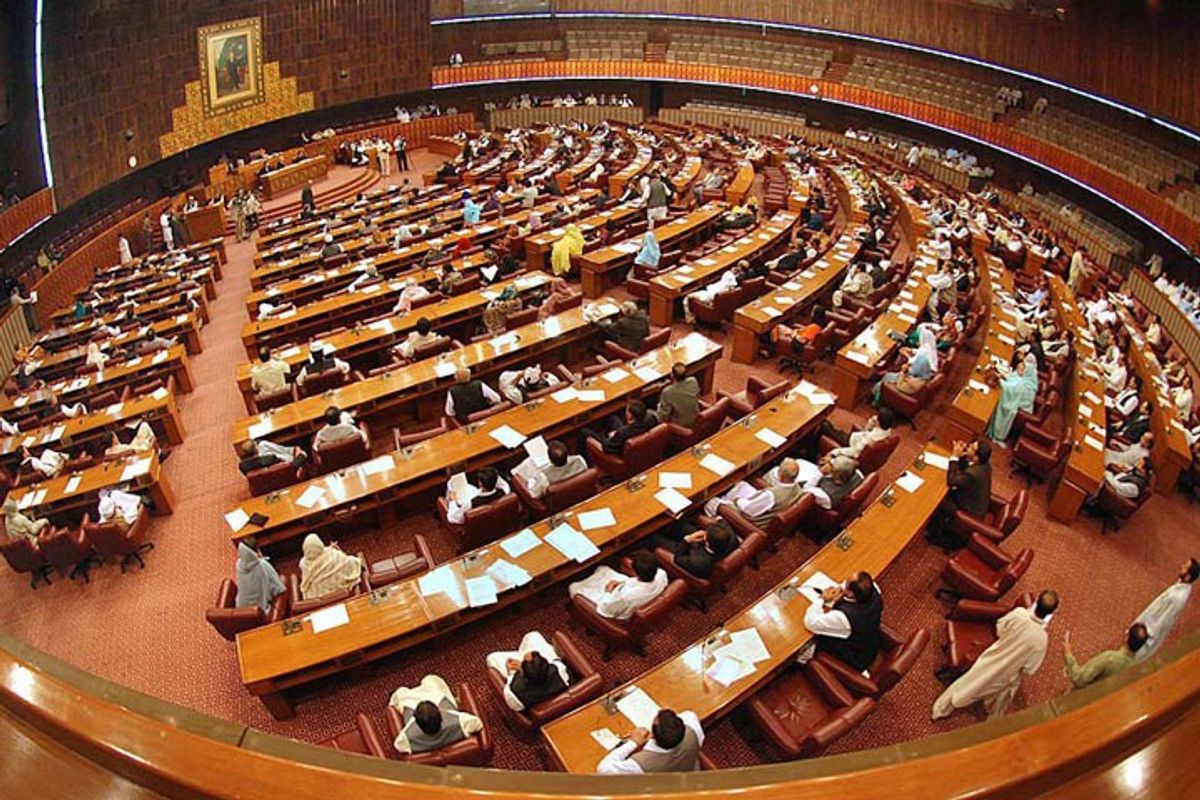Pakistan’s National Assembly passes Navy law with strict new rules
New law adds penalties, welfare provisions and extends Navy jurisdiction to retired personnel and digital conduct

Javed Hussain
Correspondent
I have almost 20 years of experience in print, radio, and TV media. I started my career with "Daily Jang" after which I got the opportunity to work in FM 103, Radio Pakistan, News One, Ab Tak News, Dawn News TV, Dunya News, 92 News and regional channels Rohi TV, Apna Channel and Sach TV where I worked and gained experience in different areas of all three mediums. My journey from reporting to news anchor in these organisations was excellent. Now, I am working as a correspondent with Nukta in Islamabad, where I get the opportunity of in-depth journalism and storytelling while I am now covering parliamentary affairs, politics, and technology.

Pakistan’s National Assembly passed the Pakistan Navy (Amendment) Act 2025 on Monday, introducing 26 changes to the Pakistan Navy Ordinance of 1961. The amendments include strict penalties for disobedience, unauthorized disclosures, digital offences, and participation in political activities by serving and retired personnel.
The bill, titled “Pakistan Navy Ordinance, 1961 Further Amendment Bill,” was presented by Defense Minister Khawaja Muhammad Asif during a session chaired by Speaker Sardar Ayaz Sadiq. A majority vote passed it and will now move to the Senate for approval.
Expanded scope and new chapter on welfare
The amended law adds a new chapter focusing on the welfare and rehabilitation of Navy personnel, both serving and retired, as well as the families of martyrs. It allows the Navy to carry out welfare activities directly or through affiliated entities and states that any such past activities will be considered legally valid under the law.
Discipline and operational authority
The Act now applies to both serving and retired personnel. It lays out comprehensive rules on discipline, institutional affairs, operational matters, and competence. A new section empowers convoy commanders to use force against merchant vessels under their protection that disobey orders. Such force may include the use of arms, and commanders are not liable for any resulting injuries, deaths, or property loss.
Commanders appointed to protect convoys must act diligently. Any officer who abandons ships, avoids combat, demands money for protection, or mistreats civilian crew can be punished with death or long imprisonment, and may be required to pay damages as determined by a civil court.
Retention during war or emergency
The Act gives the federal government the power to retain any Navy personnel up to the age of 60 in extraordinary circumstances, including war or national emergency. This must be done on the recommendation of the Chief of Naval Staff and in line with existing rules and regulations.
Strict penalties for misconduct and corruption
Officers found guilty of ill-treatment or criminal force against subordinates will face short-term imprisonment. The Act also imposes long-term imprisonment on anyone found guilty of accepting bribes or rewards, directly or indirectly, in the course of state or service affairs.
Ban on political activity after retirement.
Any person subject to this Ordinance is barred from participating in political activity for two years after their retirement, resignation, release, discharge, removal, or dismissal. A violation could result in up to two years of rigorous imprisonment.
Tightened rules on sensitive disclosures
The Act includes strong provisions to protect sensitive information. Any current or former personnel who discloses information gained in their official capacity that may harm the security or interests of Pakistan or its armed forces can be punished with up to 14 years of rigorous imprisonment.
However, disclosures made with prior approval from the Chief of the Naval Staff or an authorized officer are not considered offences. All such cases are also subject to the Official Secrets Act, 1923.
Electronic crimes and digital offences
The amended law allows the military to act against digital offences under the Prevention of Electronic Crimes Act, 2016. This includes acts committed with malicious intent to ridicule, undermine, or scandalize the armed forces through electronic, digital or social media platforms.
Anyone convicted of such offences may face the same punishments as under Act XL of 2016 or other applicable laws. If the offence is committed by someone subject to this Ordinance, the punishment may include up to two years of imprisonment, a fine, or both.
Changes to court martial process
The Act also modifies the scope and procedures of court martial, expanding the military’s jurisdiction and powers to try individuals for offences committed both during and after service. This includes offences related to discipline, security breaches, or violations of newly added sections.
The bill aims to modernize Pakistan Navy regulations, extending legal authority to retired personnel and strengthening control over discipline, operational duties, and information security. The government says it is necessary to respond to changing threats and maintain institutional integrity.
Once cleared by the Senate, the Pakistan Navy (Amendment) Act 2025 will become law.










Comments
See what people are discussing